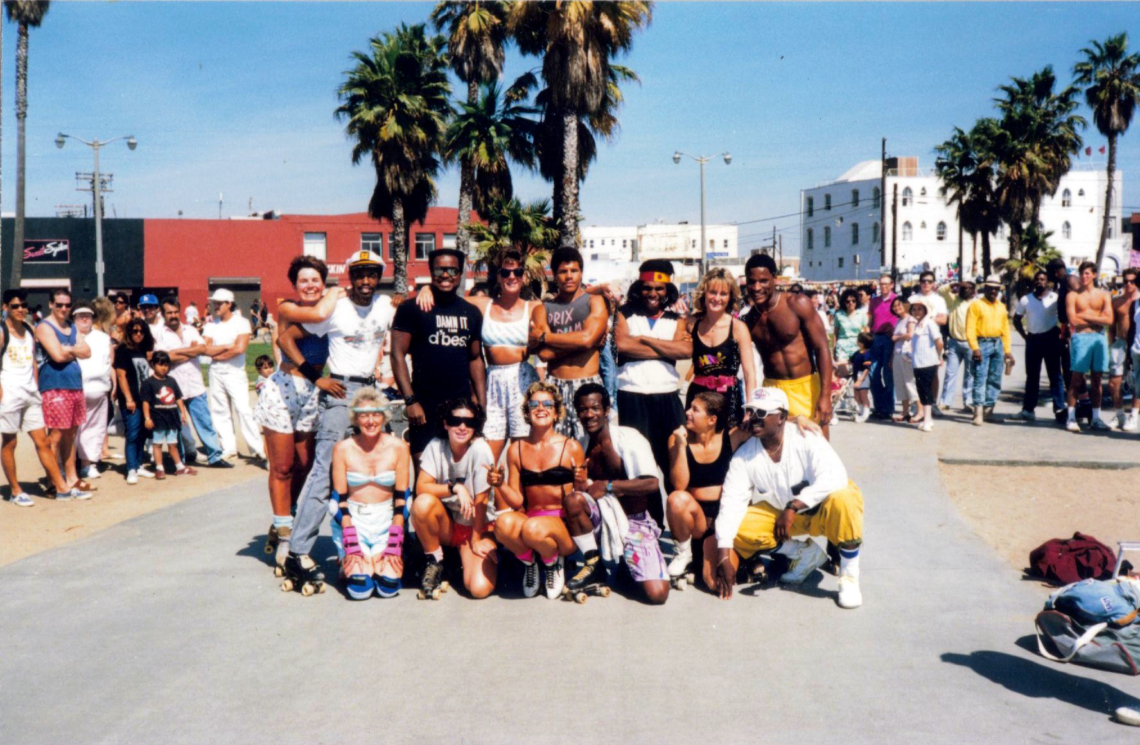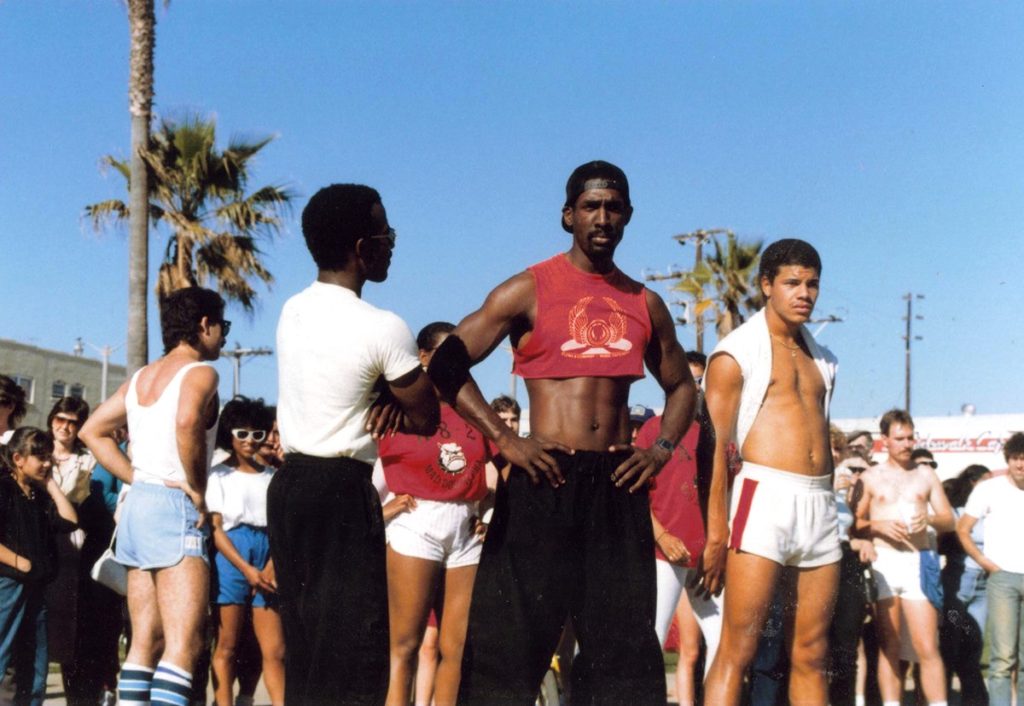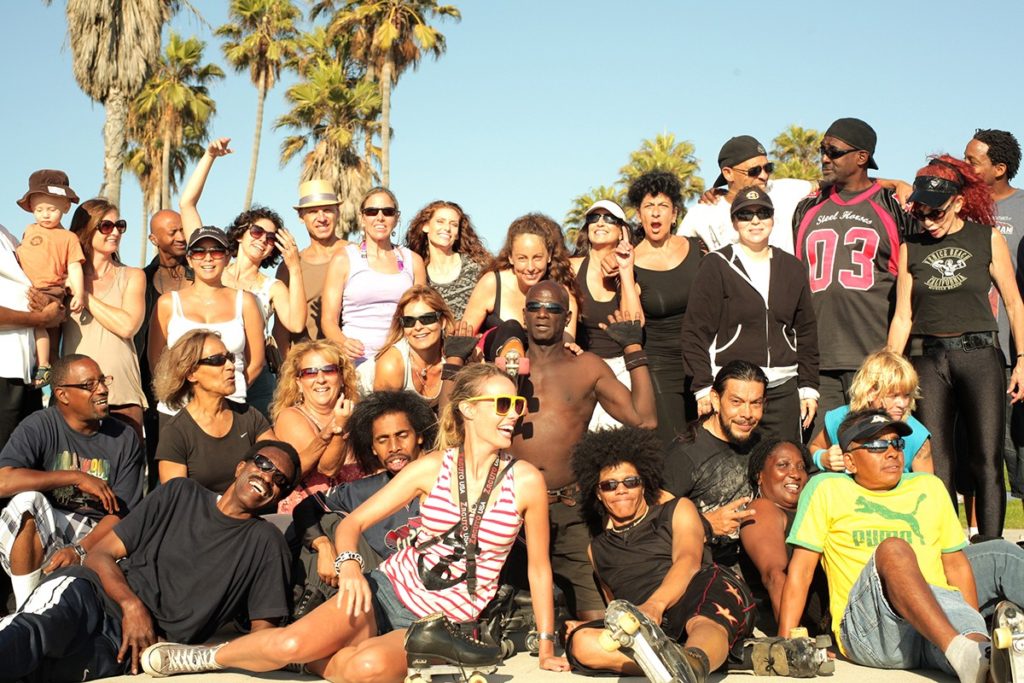
Roller Dreams Interview: Kate Hickey
“We are collaborative, sensitive, powerful and deserve equal opportunity. It is our time to finally shine and its important we stick together and support each other.”
When I picture roller dancing I imagine the large rinks, disco balls and conga lines. ROLLER DREAMS opened my eyes and showed me the humble origins of a fad that started on the beaches of Venice.
The film begins and you are instantly mesmerized by the grace, strength and precision of the skaters. You are locked in a wonderful 70s/80s haze that is only enhanced by its classic soundtrack. This incredible, diverse group of personalities brought popularity not only to roller dancing but to Venice Beach and received none of the recognition.
Kate Hickey, in her directorial debut, explores the steps that brought these young people together, and ultimately, the systematic oppression that tore them apart.
Hickey is an editor known for her work on seasons 5 and 6 of HBO’s Girls and the indie film Oh Lucy! Roller Dreams screened at the Los Angeles Film Festival, the London Film Festival and the Sydney Film Festival where it won the Audience Award.
Roller Dreams screened at the Calgary Underground Film Festival on April 22, 2018.
Tell us about Roller Dreams. Where did the idea come from?
Kate Hickey: I was obsessed with Olivia Newton-John in Xanadu growing up. I used to dress up like her and skate up and down the beach in my small town of Newcastle. Then in 2007, I moved to Venice and discovered a very unique roller dancing scene was alive and well. I got to know a few of the more outrageous characters and I got addicted to following their story. There was way more than meets the eye with what history called a passing fad. These guys were the true originals and responsible for making Venice Beach the tourism phenomenon it is today.
Did you have any expectations before meeting up with the subjects of Roller Dreams?
KH: Well with Mad I did for sure! Many of the other key characters had waxed lyrical about this mysterious, guru-like figure and he turned me down on a number of occasions for an interview. When he finally agreed I flew to Utah and had to ride on the back of his motorcycle at breakneck speeds before he gave me the interview I needed. I expected him to be a little crazy but he was way more intriguing and misunderstood than I could have imagined. He was the lynchpin.

How did you get such great footage from when the roller-skating community was thriving?
KH: Most of our key footage was from 1982 and 1984. High 8mm tapes from a great skater Morgan Saunders. There was also some 60s news stuff and 70s Venice stuff that was archival sourced by producer Diana Ward. And then we had 90s VHS stuff from Jeffrey Young. And some photos from a french skater Nadine. We really relied upon the skating community through Facebook and word of mouth to get as much as we possibly could.
Was there anything that surprised you throughout the process of making the documentary?
KH: I was most surprised by the injustice of our guys’ situation. That they helped bring all the crowds to Venice in the first place yet their area had basically been taken from them. They were put in a hole and hardly seen anymore which didn’t seem fair.
Can you tell us about some/all of the other amazing women who worked on this film?
KH: Yes! So many! Producer Diana Ward was instrumental in story-building and being there from very early on, she also sourced a lot of archival.
Our other producer Cecilia Ritchie in Australia was able to secure us a grant from Screen Australia and really helped on the story side too. Co-editor Rachel Johns was the fresh pair of eyes needed to get the story wacked into shape after I had become too close editing over a long period of time. Music composer Kathryn Bostic was able to unify the story and provide a connective tissue through her emotive and dynamic score. Music super Tiffany Anders was able to source some great authentic-sounding tracks to deliver the dose of fresh nostalgia we needed. Sally Piano was an inspiration as the only female in the cast. She gave a poetic voice to things.
Tell us about why you are a feminist and why it’s important to your filmmaking.
KH: I’m a feminist because I believe in the unique and mystical power that is woman. We are often overlooked or treated like we can’t do as good a job when it comes to film making because we are highly emotional beings?! Whereas it’s the complete opposite. This makes us more suited to the job as far as I’m concerned. We are collaborative, sensitive, powerful and deserve equal opportunity. It is our time to finally shine and it’s important we stick together and support each other.

Who are your favourite women working in the film industry?
KH: Jane Campion. Andrea Arnold. Lynne Ramsey. Charlize Theron.
What’s the best advice about filmmaking you’ve ever received?
KH: Follow your gut and then some.
What are you working on now/next?
KH: I have a short doc on a monk beekeeper in San Diego that I want to do. I also really want to find a super inspiring female-driven story.
What was the best thing that happened to you this past week?
KH: I went to a new place and got to do the best people-watching I’d done in a while. It’s my favorite thing to do. Real-life and real scenarios.
What are your three favourite smells?
KH: Eucalyptus. Horses. Pizza.
*This post was originally featured on The MUFF Society.*

